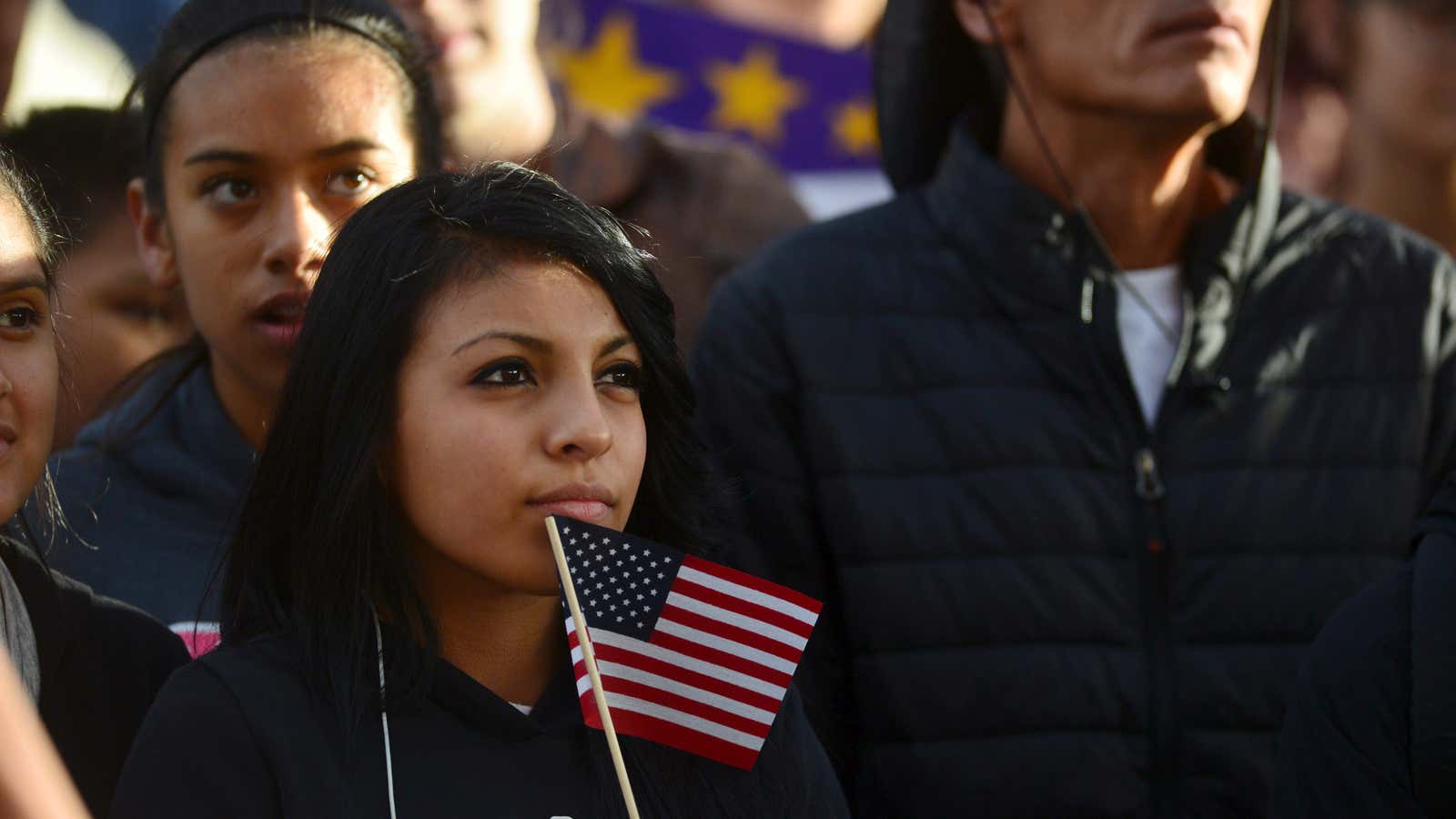On election night in the US, as preliminary results started rolling in from all over the US, one phrase kept coming up repeatedly: Latino voters.
But to some viewers, the term raised more questions than it answered.
In 2020, Latino voters became the electorate’s single largest minority group for the first time. But that seemingly unified label is deceiving—Latino voters were responsible for Republican president Donald Trump’s win in Florida, and for Democratic nominee Joe Biden’s projected win in Arizona. Is it even useful to think of Latinos as a single voting bloc?
Some experts say politicians shouldn’t, because people who identify as Latino hinge their votes on a wide range of issues. “The reason the ‘Latino vote’ befuddles is because it doesn’t exist, nor do ‘Latino issues,'” writes Isvett Verde, a staff editor at the New York Times’ Opinion section. “If we want to understand how Latinos vote, we should start by retiring the word ‘Latino’ entirely—and maybe ‘Hispanic,’ too.”
Some have pointed out that the term “Latino” refers to a pan-ethnic identity, one that spans a range of races, national origins, and linguistic backgrounds. ”Terms like Hispanic and Latino do not fully capture how we see ourselves,” says Geraldo Cadava, an associate professor of history and Latina and Latino studies at Northwestern University.
People can inhabit many different identities at once, Cadava says—he’s comfortable calling himself Latino, but also American, as well as Colombian and Panameño, where his grandparents are from. “I don’t know that I have a problem with the term, except for when politicians say things like Latinos are naturally conservative or liberal. One should never start sentences with the two words ‘Latinos are.'”
Subsections of Latino voters have a range of historical influences vying to affect their votes. Cuban American voters, mostly concentrated in south Florida, tend to vote Republican in part because of their anathema for anything perceived as socialism, the party of Fidel Castro’s government that many of their families fled, and a term that the Democrats have somewhat embraced in recent years (though their interpretation of it is different).
Mexican Americans, however, have no such historical relationship with either party. Though Trump has repeatedly insulted Mexicans, many of these voters have more ideologically in common in Republicans than they do Democrats—as one Texan voter explained, Mexican Americans vote for Trump because of “God, guns, and gas,” (referring to petroleum in Texas, home to about a quarter of the US’s Mexican American population, and an industry Biden has threatened to undermine in a push away from fossil fuels).
Puerto Rican voters who have left the island might be influenced by influenced the territory’s move towards statehood, as a referendum for Trump’s failed relief effort after Hurricane Maria, or regarding how it is taxed.
A September poll by Univision (pdf) showed the top three issues Hispanic voters want the next president to address are responding to coronavirus, lowering the costs of healthcare, and improving wages and incomes. That’s pretty similar to the findings of an August poll by Pew, which found that the economy, healthcare, and Supreme Court appointments were the top three issues, closely followed by the coronavirus outbreak.
“This is complicated,” Cadava says. “There are times when Latinos have come together and seen a benefit in coming together, and times when people of different Latino backgrounds have had different approaches to things. That’s not a bad thing—in different contexts at different moments, Latinos can emphasize their similarities or differences or work together or work differently.”
Some of those similarities, noted by political organizations such as The Republican National Hispanic Assembly, include Catholicism, speaking Spanish, strong family values, and US patriotism—an imperfect grouping, especially now, but representative of Latinos’ ongoing effort to think about what they share, not where they differ.
It would make the US stronger if the rest of the country did the same—that is, thought of Latinos as Americans who have a range of beliefs and vote accordingly. “We need to think of Latinos as a big national population,” says Cadava. “We’re complicated like the rest of you, we’re not ideologically consistent.”
Politicians who point out similarities between voters, instead of emphasizing their differences, might do better at unifying the country as a whole. “We see all our divisions. We’ve already been taken apart. Now stitch us back together,” Cadava says.
Chart by Dan Kopf
Read more of Quartz’s election coverage
- American democracy bent but it didn’t break
- What Biden’s win changes for America, China, and the environment
- The dystopian, Trumpian future narrowly avoided by America and the planet
- What we know about Biden’s Day One agenda
- And more
